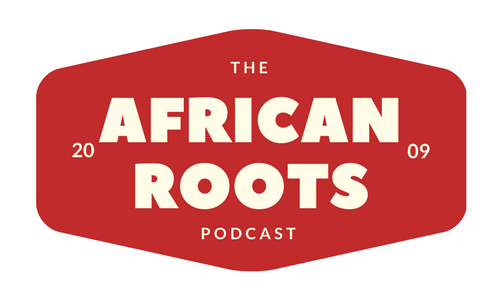Podcast: Play in new window | Download
Welcome back to the African Roots Podcast. My name is Angela Walton-Raji and you can reach me at AfricanRootsPodcast@gmail.com
May 5, 2011 Freeport IL
The Stephenson County Genealogical Society will welcome local author Joyce Salter Johnson to speak at 7 p.m. on May 5 at the Freeport Public Library meeting room. Johnson will speak about her book, “The History of Early Black Settlers of Stephenson County.” Learn about the events and stories of migrant families in this period; how the first black individuals came to Stephenson County and how the end of the Civil War brought many black migrants. There will be a business meeting after the program. The program is free and the public is invited to the program or to bring questions concerning genealogy research.
* * * * * * * * * *
All day Genealogy Family History Day Kensington MD Family History Cente
Saturday, May 7, 2011 at 9:00 am. The Washington DC Family History Center will present its 5thAnnual Family History Conference. The keynote speaker is James Sweany, Head of the Local History and Genealogy Reading Room at the Library of Congress. The title of his talk is “Pursuing Your Family History in the National Library.” This conference is free of charge and features 23 classes that cover a wide variety of topics from beginning to advanced genealogy research. For a description of classes and registration information, visit http://www.wdcfhc.org.
Starting in May—May 9th
The Auburn Avenue Research Library will host Slave Cabins: The Architecture of Enslavement , an exhibition by photographer Curtis Graves, that examines plantation architecture, particularly the living quarters of enslaved Africans. Where: Heritage Education Center Auditorium Gallery, 4th Floor, Auburn Avenue Research Library, 101 Auburn Avenue When: May 9 – July 31, 2011
Wednesday, May 11, 2011 – Saturday, May 14, 2011. The National Genealogical Society will present its annual conference entitled “Where the Past is Still Present.” The conference will be held at the Charleston Area Convention Center, 5001 Coliseum Drive, North Charleston, South Carolina. The registration fee is $175.00 – $245.00. Additional details can be found at http://www.ngsgenealogy.org/.
* * * * **
Tuesday, May 24, 2011 at 7:45 pm. The Genealogical Research Institute of Virginia (GRIVA) will present a program entitled “John Brown’s Raid in Steroscope.” The speaker is Dr. Ben Greenbaum. The meeting will be held at the Bon Air Presbyterian Church, 9201 West Huguenot Road, Richmond, Virginia. Additional details can be found at http://grivagenealogy.wordpress.com/.
* * * * * * *
May 21, Eitlejorg Museum in Indianapolis Genealogy Day This is a full day of events and lectures, exhibitions and entertainment.
I want to extend a special thank you to Dr. Jessie Schreir of Catonsville Community College who invited me to participate in the Speaker series at the college last night. The experience was wonderful and I was so delighted to meet such a wonderful group of students. Their questions were great and I was delighted to present an overall session on telling your own story and the importance of doing so. What impressed me was that many of the students did have a good sense of history and several had stories from their own histories.
The experience last night and preparing for it made me think about the obligation that we have to tell the story. HOW do you tell it? How do you present it, and how do you preserve it for the next generation?
Collecting the data is important—but if you don’t preserve it so it will known—then all is lost.
How many of you are carrying the family data in your head? Have you written it down and backed it up? How have you backed it up?
You know—recent disasters from tsunami’s to tornadoes have made me really think about this more in depth—and all of us need to consider how our work becomes known, become exposed—not just in duplicate—but a variety or formats.
First —writing the story is critical. Many of those in the class last night had snippet of their history, but when discussing it—things got fuzzy for them. How will it be passed on? If not written—then it is obvious—not very well.
But once written—how then is it preserved? In a family booklet for the next reunion. Within 10-20 years few copies will remain, and in time, that too will become lost.
Should copies be sent outside the family unit? By all means! Libraries, historical societies—organizations—there are other places where such efforts will welcome those projects.
But what about other documents—and artifacts? Efforts should be considered to also preserve those as well.
With the convenience of digitization—all photos should be copied. Duplicates can be made—but digital copies can be made as well—and now with technology—the chance of storing data outside of the hardware—should also be considered. I realize myself that I have to think differently to make sure that my own work will be preserved. We all have a lot of work to do.
Thanks for listening. I will be coming to you next week from Arkansas. Have a great week, stay safe, and keep researching, keep documenting, and keep sharing what you find.

